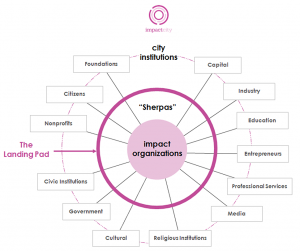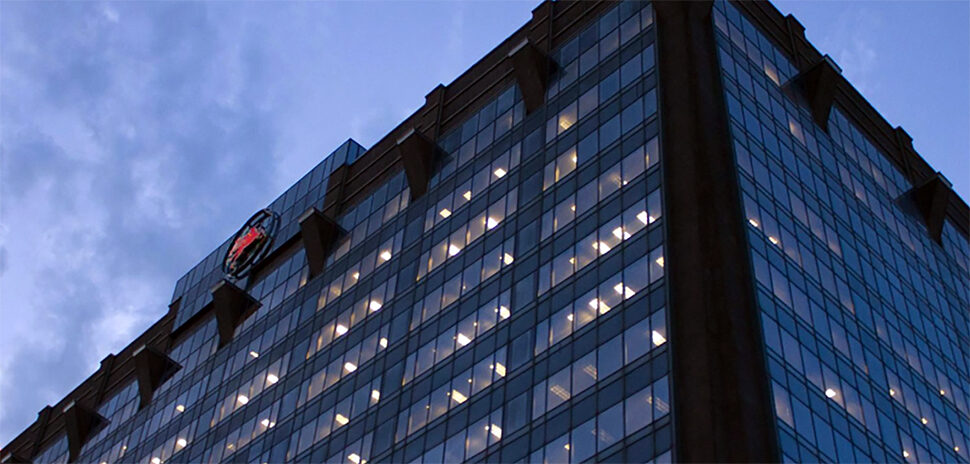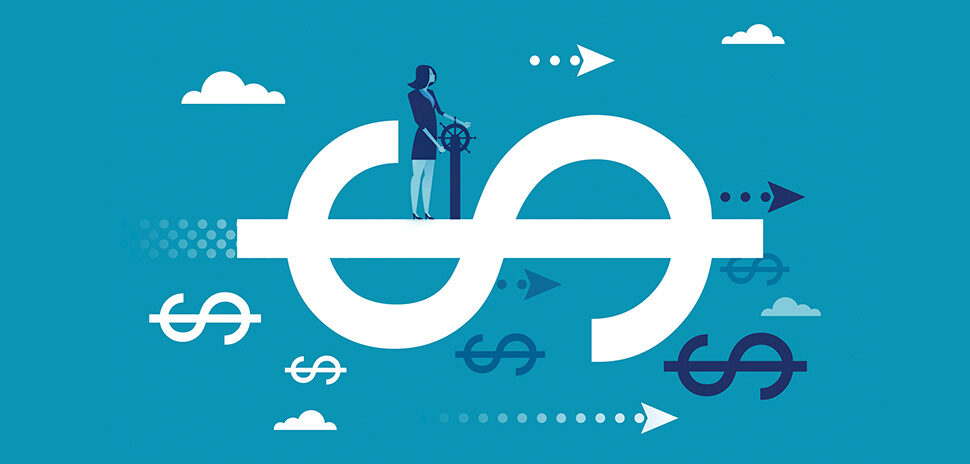In my last column, I challenged Dallas to reimagine itself as the Impact City — the global center for sustainable organizations solving the world’s biggest problems.
But as the French writer Antoine de Saint-Exupéry said, “a goal without a plan is just a wish.” What concrete steps do we now take to make Dallas the world’s most important hub for Impact Organizations?
Step 1: Get Clarity on Impact
My heart always sinks a little when I hear people say, “Salah wants Dallas to be the nonprofit capital of the world!” Let’s clear that one up right away: a global hub for nonprofits is a bad idea.
 In the U.S., we give just over 2 percent of our gross domestic product to charity every year through boom and bust cycles going back decades. Creating more nonprofits just splits up the same pie among more organizations. Concentrating them in one place would just dilute the fixed resources of the city among more groups.
In the U.S., we give just over 2 percent of our gross domestic product to charity every year through boom and bust cycles going back decades. Creating more nonprofits just splits up the same pie among more organizations. Concentrating them in one place would just dilute the fixed resources of the city among more groups.
I’m advocating not for more nonprofits, but for more Impact Organizations. An Impact Organization creates a social outcome (how we usually think of nonprofits) with a sustainable and scalable business model (how we usually think of companies). The three qualities that define an Impact Organization are:
- It exists first and foremost to solve a significant social issue that improves the lives of people who are substantially disadvantaged.
- It has a business plan to generate a profit.
- It implements its mission without substantial negative side effects to society.
If you’ve been to Café Momentum, bought something from Soap Hope or Akola Project, or invested in Equal Exchange, you have powered an Impact Organization.
When Impact Organizations develop, they create new resources for the city. They create jobs, investment opportunities, capital, and brands. They attract talent. They bring great ideas to the local nonprofit and for-profit ecosystems. Their people volunteer in the neighborhoods, lecture at the universities, mentor entrepreneurs, serve on boards, invest in new startups, and attract more Impact Organizations from other parts of the country and the world. They drive not just innovation, but innovation with purpose.
Step 2: Organization
“If you want to build a movement, organize people, money and ideas.” – Tony Fleo, SVP Dallas.
Impact City won’t just arise on its own. It needs structure to bring people, resources and strategy together. Impact City Initiative was formed this year to provide just that framework. It is organizing brilliant impact minds and top leaders in business, foundations, nonprofit, civic organizations, and other important institutions of the city. It will operate a series of programs to elevate Dallas to the position of world impact leader.
The first program of Impact City Initiative is called the Landing Pad. The Landing Pad is designed to bring premier organizations working on solving humanity’s greatest challenges to open headquarters or a field office in Dallas. Hundreds of organizations will come to Dallas through the Landing Pad, bringing top impact institutions and talent from around the globe to make their home in our city.
The heart of the Landing Pad program is a team of over a dozen “Sherpas” who powerfully connect arriving organizations into the city. Each Sherpa has deep relationships with a key segment of institutions in the city: industry, education, entrepreneurs, media, capital, religious institutions, etc.
A dedicated Sherpa leads each Impact Organization into the Impact City to achieve their short- and long-term goals and strategy. The Landing Pad drives the organization’s value to Dallas, and Dallas’ value to the organization.
The Landing Pad is an innovation. It is not a co-working space, an accelerator, or an incubator, and there is nothing like it in Dallas or anywhere in the country. It is bringing purposeful for-profits, sustainable non-profits, investment funds, foundations, governmental offices and global institutions to Dallas. It will benefit the entire city’s economy, culture, and global brand.
And true to form, the Landing Pad is an Impact Organization itself: its innovative business model makes it financially sustainable year over year.
Step 3: Let’s Go, Dallas
The Landing Pad team is working right now to bring a first group of Impact Organizations to Dallas in 2017 — that’s just around the corner.
At the same time, we are building partnerships with all our region’s institutions — businesses, universities, civic organizations and entrepreneurship centers — to be ready when they arrive.
If you are the leader of an organization in North Texas, ask yourself this: what value would an organized group of one hundred Impact Organizations bring to you? If you could be in partnership with a collection of social entrepreneurs, foundations, investors, and impact networks focused on the great issues of our time — water, energy, education, poverty, slavery, conflict, environment, health — how would that benefit you, your team, and your organization, and how could you participate? How will those relationships drive value for the millennials on your team? What will those Impact Organizations bring to you, and how will you partner with them to drive value for our city and the world?
Whether you are an organization leader, a future Sherpa, or want to advise or volunteer, you can participate in creating the Impact City. Let us know you are interested, and we will plug you in: [email protected].
For a daily dose of what’s new and next in Dallas-Fort Worth innovation, subscribe to our Dallas Innovates e-newsletter.





























